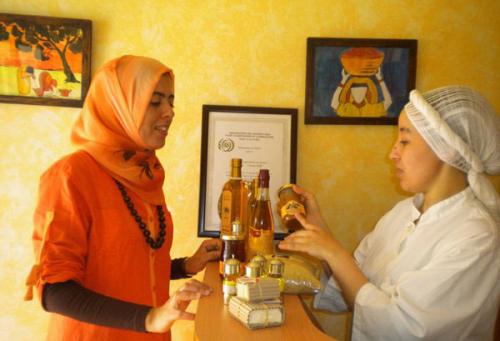Trade among African countries essential to sustainable growth in the continent – Ban
Marking Africa Industrialization Day, Secretary-General Ban Ki-moon today flagged the role that intra-African trade plays in achieving sustainable, inclusive and equitable growth in the continent, and called for its expansion by lowering trade constraints.

Building export consortia in Morocco.
“African economies are among the fastest growing in the world, yet intra-regional trade accounts only for 10 per cent of the continent’s commerce – significantly less than in other regions,” Mr. Ban said in his message for the Day, the theme for which this year focuses on accelerating industrialization by boosting trade within the continent.
“Many constraints impede trade expansion in Africa: obsolete infrastructure, fragmented economic space, low production capacities, limited investment financing and high transaction costs,” Mr. Ban added. “Eliminating these obstacles is a prerequisite to fully realizing Africa’s economic potential and helping to address the continent’s socioeconomic and developmental challenges.”
The General Assembly proclaimed 20 November as Africa Industrialization Day in 1989 to mobilize the commitment of the international community to support industrial development in Africa.
Intra-African trade, Mr. Ban underlined in his message, can help free the continent from its reliance on international aid and improve its resilience to macroeconomic and other external shocks. In turn, industrialization can boost this type of trade by helping diversify exports.
In particular, he noted, the development of rural and food processing industries could help lift people from poverty. Facilitating trade however, requires the improvement of road, rail and other communications infrastructures.
“Industrial growth will require greater and more reliable supplies of energy. Improved energy infrastructure – including investments in renewable power generation and energy efficiency – would allow countries to produce more, and more competitively,” Mr. Ban said.
Source: UN News
- 333 reads
Human Rights
Ringing FOWPAL’s Peace Bell for the World:Nobel Peace Prize Laureates’ Visions and Actions

Protecting the World’s Cultural Diversity for a Sustainable Future

The Peace Bell Resonates at the 27th Eurasian Economic Summit

Declaration of World Day of the Power of Hope Endorsed by People in 158 Nations

Puppet Show I International Friendship Day 2020

